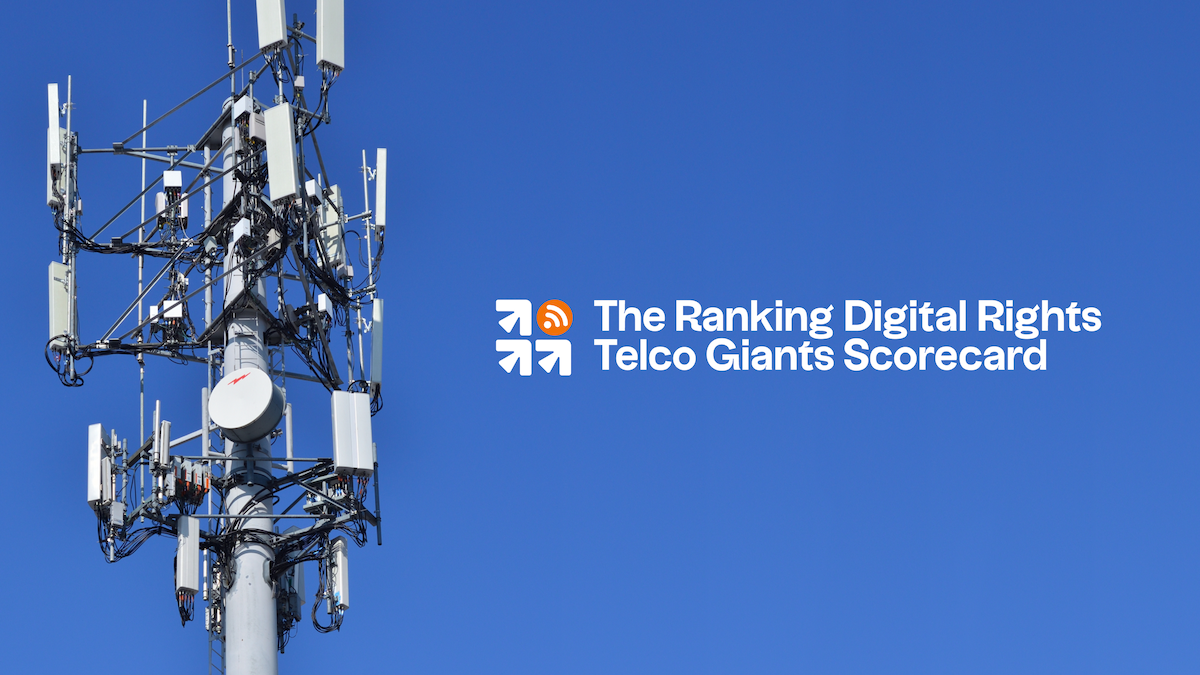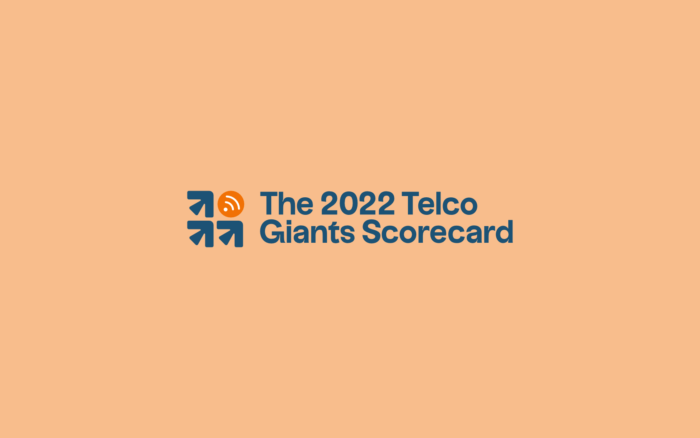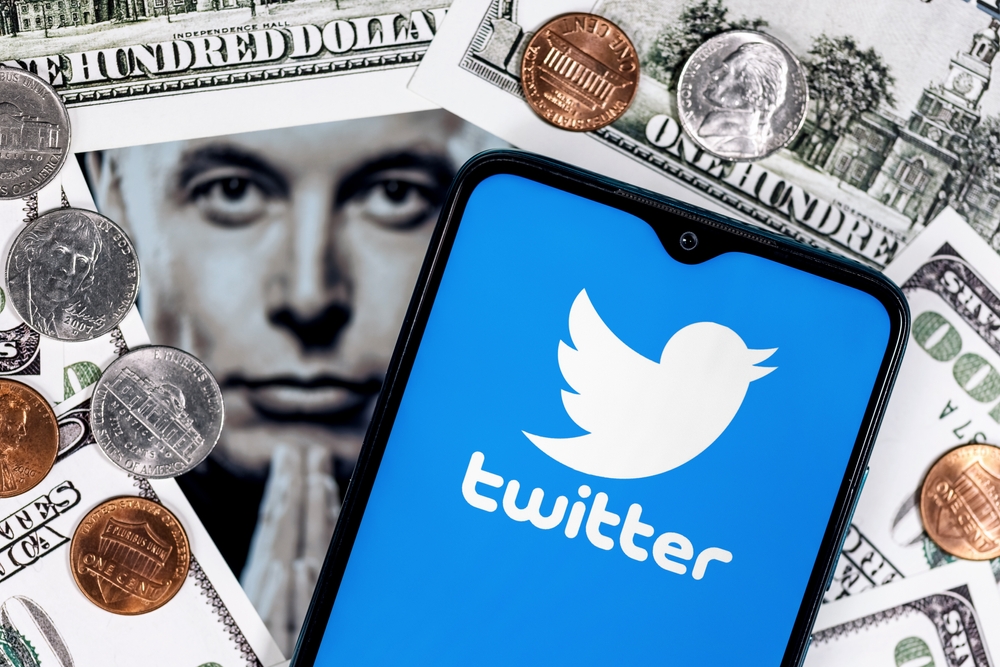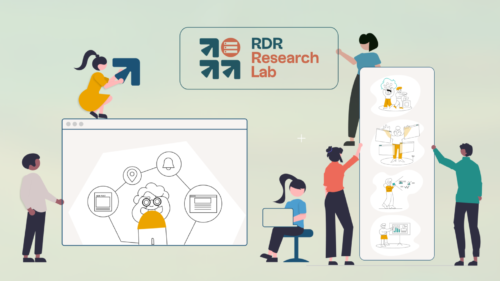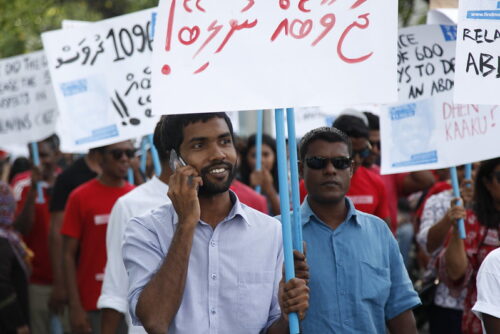01 Dec The Radar: Are Telcos Getting a Pass on Digital Rights?
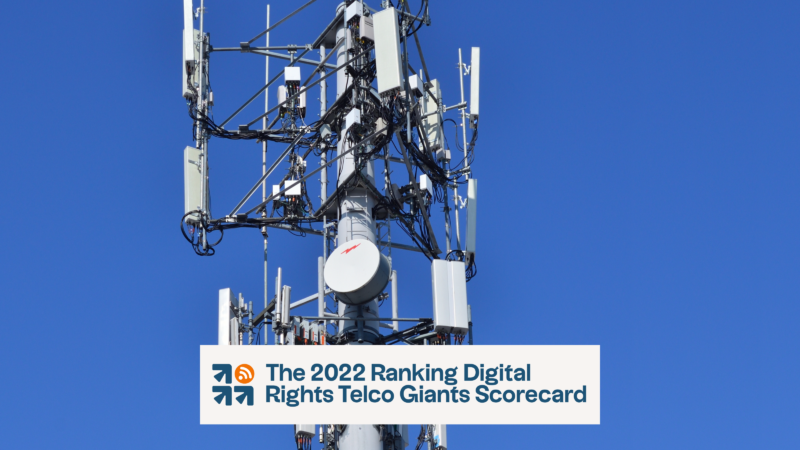
Mark your calendars! On Monday, we’re releasing the 2022 Telco Giants Scorecard, RDR’s ranking of the world’s most powerful telecommunications companies on their policies related to users’ fundamental rights, including freedom of expression and privacy. Set a reminder for December 5 to visit rankingdigitalrights.org and see which telco giant tops this year’s list, which companies improved the most, and which ones are lagging behind.
For the first time, we’re releasing our findings on telcos separately from tech platforms. Our Big Tech Scorecard, published earlier this year, covered 14 digital platforms and highlighted the fact that digital platforms are doing far too little to address the negative ramifications of their policies, including during critical moments like elections and pandemics.
This time around, we want to highlight the particular risks and harms to users’ digital rights created by telcos. While digital platforms have been a mainstay in our public discourse in recent years for the harms they perpetuate (consider recent media coverage of the downfall of our Big Tech top scorer Twitter), telcos are still the primary providers of internet access globally. And they are just as likely to enable human rights violations, while being even less transparent about their activities.
This is particularly true in two areas with risks to human rights usually associated with platforms: algorithmic systems and targeted advertising. Telcos, whose operations are much more intimately tied with governments, also perpetuate harms that platforms do not. For example, governments, especially authoritarian regimes (recall the recent protests in Iran), have been ordering telcos to shut down their networks with increasing regularity.
This year’s Telco Giants ranking dives deep into freedom of expression and network shutdowns, privacy issues and mass surveillance, and the unique ways telcos engage in targeted advertising in our nine Key Findings essays. We also address how telcos differ from platforms, how our methodology treats them differently, and the unique challenges they face.
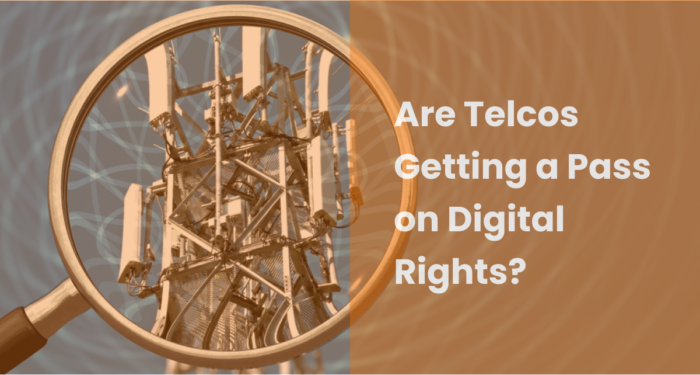
RSVP to Join the Conversation “Are Telcos Getting a Pass on Digital Rights?” on December 7th
On Wednesday, December 7 at 9:30 a.m. ET, we’ll host a panel of experts from civil society and industry to discuss the findings from the Telco Giants Scorecard, where telcos are failing to protect digital rights, and how they can improve. We’ll also look at what happened to the once critical debates around the role of telcos and how we can resuscitate them.
Joining the conversation are:
- Jason Pielemeier, Executive Director, Global Network Initiative
- Laura Okkonen, Investor Advocate, Access Now
- Thomas Lohninger, Executive Director, epicenter.works
RDR’s director, Jessica Dheere, will open the conversation with high-level takeaways from the 2022 Telco Giants Scorecard, and our Scorecards program manager, Veszna Wessenauer, will moderate.
RDR’s Comment to the FTC: It’s Time to End Surveillance Ads
On November 21, RDR submitted comments to the Federal Trade Commission (FTC) in response to its Announcement of Proposed Rulemaking (ANPR) on commercial surveillance and data security. With passage of the ADPPA still stalled, and in the absence of a robust federal privacy law, the FTC launched an inquiry this summer looking into commercial surveillance practices, citing “the explosive growth in the information collection economy.”
In our comment, we highlight the myriad harms of commercial surveillance, while urging the Commission to use its authority to regulate it and ultimately abolish surveillance advertising. We highlight the harms stemming from a lack of transparency, poor governance, and inadequate enforcement of policy that make the advertising ecosystem ripe for exploitation. One of the many examples we cite: Meta has long struggled with the spread of content related to human trafficking and domestic servitude. In fact, as recently as 2018, the company had no policy against posts recruiting domestic servants.
But among the most pressing issues related to the digital advertising industry is the lack of meaningful consumer privacy safeguards. As media scholar Sarah Myers West (now an advisor to FTC Chair Lina Khan) has underscored, an entire sector of the economy is “premised on the collection and commoditization of user data.”
Our recommendations include moving beyond “notice and consent” frameworks, specifying permissible purposes for data collection, and regulating commercial surveillance as an unfair trade practice–de facto banning surveillance advertising.
Read more, including our full comment to the FTC on Commercial Surveillance and Data Security. →
Recent Events
December 7: Responsible Investor USA | How can responsible investors take on Big Tech?
RDR Investor and Company Engagement Manager Jan Rydzak will join a panel focused on Big Tech accountability at this year’s Responsible Investor USA conference.
RDR Media Hits
The Logic: RDR Policy Director Nathalie Maréchal spoke to The Logic about how Elon Musk fails to understand responsible content moderation and Twitter’s “unaccountable-billionaire problem.”
Coda Story: RDR Company and Investor Engagement Manager Jan Rydzak spoke to Coda Story for the “Authoritarian Tech” newsletter to discuss how Elon Musk’s takeover of Twitter is a step back for the accountability movement. “If we’ve tried to motivate a race to the top, now there’s a powerful actor [Musk] who’s driving in the other direction. It would not be a surprise to see [other companies] follow suit.”

Support Ranking Digital Rights!
If you’re reading this, you probably know all too well how tech companies wield unprecedented power in the digital age. RDR helps hold them accountable for their obligations to protect and respect their users’ rights.
As a nonprofit initiative that receives no corporate funding, we need your support. Do your part to help keep tech power in check and make a donation. Thank you!
